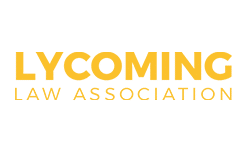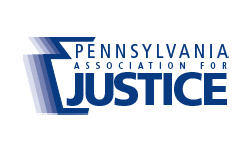When we make the difficult decision to place a loved one in a long-term care facility, we trust that the facility will do whatever is necessary to care for and protect our loved one. It’s the facility’s duty by law to protect its residents. If a loved one is harmed or neglected in such an institution, the facility has failed this duty of care. If a situation like this has happened to your loved one in a Pennsylvania nursing home, you can take legal action against that facility to ensure no one else is similarly harmed. With the help of a Danville nursing home abuse lawyer, you can hold a facility accountable for its negligence.
At Stapp Law, LLC, we are committed to giving each of our clients our personal attention and helping them however we can when they first reach out to us. If you are in a situation involving a nursing home or nursing home employee who has harmed, abused, or was otherwise negligent and allowed a loved one to be harmed, we can help get your loved one to safety as soon as possible and investigate the legal options you may have at no cost or obligation to you for the initial consultation.
If you’re eligible to file a lawsuit against the negligent nursing home, your family may be able to receive compensation that can go towards medical bills and recovery costs for your loved one as well as the emotional costs of having to endure a situation no one should ever have to endure.
First, let’s go over some facts and information about nursing home abuse and neglect.
Facts About Nursing Home Abuse
Nursing home abuse is unfortunately more common than most people believe. Abuse can take various forms, but the most common form is physical. Physical abuse can also accompany the other types of abuse, which include verbal or psychological abuse, financial abuse, and sexual abuse. Here are some of the most common defined actions that make up abuse:
- Aggressive or rough handling of a resident
- Yelling at or threatening them
- Pulling or pushing them too hard
- Punching, kicking, slapping, or hitting them
- Speaking to them in a harsh manner, saying mean things about them, or cursing at them
- Using physical restraints or chemical restraints improperly
According to the World Health Organization, roughly 1 in 6 people 60 years and older experienced some type of abuse in a community setting during 2020 and 2021. Rates are particularly high in nursing homes and long-term care facilities.
Neglect is defined as the refusal or failure of a caregiver to provide the necessary treatment, medical care, supervision, food, clothing, shelter, or services that an older person requires. In a facility like a nursing home, neglect can take various forms, such as:
- Not giving regular baths or cleaning up residents after they wet or soil themselves
- Ignoring residents who are bedfast by not offering activities to them or not allowing them to do range of motion exercises
- Withholding dental care or prescribed wound care
- Not keeping residents properly fed or hydrated
- Not doing scheduled toileting or helping residents when they ask for assistance
- Taking no action when a resident pushes their call light, or turning off a resident’s call light completely
- Doing one-person transfers to move a resident when the resident requires two-person transfers
Abuse and neglect often present similarly and both seriously endanger the lives of elderly nursing home residents.
Signs of Nursing Home Abuse and Negligence
Residents who have suffered from abuse or neglect will sometimes appear depressed, agitated, scared, or withdrawn, especially when staff members are nearby who may have committed the abuse or repeatedly ignored their requests. Other signs and symptoms that your loved one may be getting abused, neglected, or otherwise mistreated in a long-term care facility include the following:
- Signs of bad hygiene, including poor-smelling odor, dirty skin, and ill-fitting, damaged, or missing clothing
- Anemia
- Dehydration
- Fatigue
- Noticeable weight loss
- Untreated medical or dental issues
- Unexplained bruises or lacerations
- Unexplained marks from restraint usage
- Repeated falls
- Recurring illnesses or injuries
- Sudden personality changes, especially the addition of anxiety, fear, or depression
- Increased isolation
- Suicidal thoughts or actions
- Loss of trust in others, especially staff members (or certain staff members)
Every time you visit your loved one, make sure to pay close attention to their wellbeing and how they appear and act and how they are being cared for. If you notice any of the above symptoms, speak to a nursing home staff member immediately. Go straight to administration if you have to. If your questions are not answered or your concerns are not addressed, this is a major red flag that something may have occurred that the facility is trying to hide or cover up. Repeated concerns are also a major red flag.
Taking Action to Protect a Loved One
It’s a simple fact that many nursing homes in Pennsylvania are understaffed. This is especially true since the COVID-19 pandemic. In fact, many facilities nationwide have reported an increase in nursing home abuse since COVID-19. Understaffed facilities have a more difficult time providing the essential care to every resident. It’s also easier for staff members who abuse residents to “get away” with abusive acts if a facility has less employees and less supervision.
Facilities still have a legal responsibility to provide reasonable care for our elderly loved ones, however, even if they are experiencing hiring or staffing issues. If a facility is so understaffed that they cannot provide this care, steps need to be taken to transfer residents or hire temporary staff members that can ensure proper care is provided. Understaffed nursing homes are not an excuse for negligence.
If you feel your loved one may be getting abused or is being neglected in a nursing home in central Pennsylvania, you should act immediately to ensure they are transferred to a safer facility as soon as possible. To get help, you can contact the Pennsylvania Ombudsman office. If the facility is in Danville, PA, or anywhere in central Pennsylvania, it’s also a good idea to get in touch with a Danville nursing home abuse lawyer. An experienced attorney will be able to help you relocate your loved one and investigate the facility to find out what happened and why.
At Stapp Law, LLC, we will do whatever we can to help you and your family through a difficult situation that no one should have to endure. We may be able to help get justice for your loved one. Reach out to us to learn how we can help.






